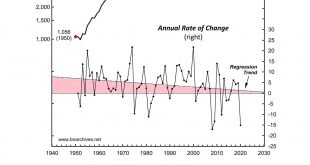from Dean Baker and Arjun Jayadev The Covid 19 pandemic is once again at an inflection point– with cases now falling sharply in most of the world. The current pandemic may be coming under control, but after millions of preventable deaths, this is very far from a success story and it is as good a time as any to take a hard look at our failings, especially with regard to our management of knowledge Across the world, the number of Covid infections are declining: the United States numbers...
Read More »Open thread October 12, 2021
Life expectancy in the U.S.
from John Komlos – http://www.paecon.net/PAEReview/issue97/Komlos97.pdf A good economy would not have 150,000 deaths of despair a year with life expectancy declining even before Covid (Figure 7) (Case and Deaton, 2020). When traditional social structures of support dissolved for working class whites there was nothing to take their place and despair accumulated. The family was gone, the unions were gone, neighborly love was gone, the churches were no longer relevant, the government looked...
Read More »Raising Keynes
from Lars Syll The defeat and suppression of the classical perspective — with its evolutionary, institutionalist, and developmental descendants — cleared the way for a dogmatic economics that exalted self-regulating competitive markets … As we have seen, this perspective soon ran into serious — but temporary — difficulties with the Great Depression, mass unemployment, and the rise of Keynes, whose theory is revived in Harvard University economist Stephen A. Marglin’s Raising Keynes …...
Read More »Open thread October 8, 2021
The decline of US power based on financialised neoliberal capitalism
from Radhika Desai and Michael Hudson As a new Cold War against China began, it was clear that the pandemic was altering the international balance of power fundamentally. For former US Treasury Secretary, Lawrence Summers, it was likely a “hinge of history”: “[i]f the 21st century turns out to be an Asian century as the 20th was an American one, the pandemic may well be remembered as the turning point”. It would erase 9/11 and 2008 from memory and rank alongside “the 1914 assassination...
Read More »Mainstream economics — the poverty of fictional story-telling
from Lars Syll One of the limitations with economics is the restricted possibility to perform experiments, forcing it to mainly rely on observational studies for knowledge of real-world economies. But still — the idea of performing laboratory experiments holds a firm grip of our wish to discover (causal) relationships between economic ‘variables.’If we only could isolate and manipulate variables in controlled environments, we would probably find ourselves in a situation where we with...
Read More »Open thread October 5, 2021
Dominant capital and the government
from Shimshon Bichler and Jonathan Nitzan This note contextualizes the ongoing U.S. policy shift toward greater ‘regulation’ of large corporations. Cory Doctorow (2021) and Blair Fix (2021) are optimistic about this shift. We doubt it. The Limits of Power Large U.S.-based corporations are extremely powerful, but the growth of their power has decelerated considerably. Figure 1, updated from our ‘Corporate Power and the Future of U.S. Capitalism’ (Bichler and Nitzan 2021), shows the...
Read More »How big a bubble ?
We[1] are often urged to “get out of our bubbles” and engage with a wider range of viewpoints. This mostly turns out to be a waste of time. As I experienced from my side, engagement with the political right consists mainly of responding to a string of talking points and whataboutery, with little if any content. On the rare occasions these discussions have been useful, it’s typically because the other party in the discussion is on the verge of breaking with the right[2] To restate...
Read More » Heterodox
Heterodox



